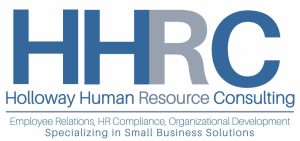- Do you have an outdated — or no employee handbook?
- Be careful asking inappropriate – or the wrong questions during an employment interview
- Are You Using Outdated or No job descriptions?
- Are you conducting background checks on your prospective employees?
- Be sure you are properly paying overtime to non-exempt employees
- Are you consistently documenting work practices?
- Educate your employees on sexual and other forms of workplace harassment and discrimination
- Are you avoiding or inconsistently dealing with any employee performance, behavior and conduct issues?
- Formally evaluate employee performance and development
Some employers simply do not believe in conducting performance reviews. It’s understandable. Oftentimes the process is not only grueling, it is a waste of time for both the employee and the manager. When it comes time to defend employment decisions or discrimination complaints however, these employers often regret their failure to formally document performance (both good and bad) on at least an annual basis. That’s only part of the reason for doing them. Employee reviews can and should be so much more. If your review process is terrible, then scrap it and start over.
First, if you do provide evaluations, make sure the reviews are fair and honest. It can be just as bad to suffer from “performance inflation” as it is to have no evaluations at all.
Start here: The best way to approach employee performance is to evaluate it all the time. A five to ten minute – and periodically longer – discussion with an employee about your expections, what is working well and what could be improved can have huge returns.
And, it gives you something to talk about with your employee as a follow up.
A powerful change occurs when you approach employee performance this way; rather than reacting and responding to employee issues you are now actively managing the employment relationship. This is a considerably more productive use of your and their time.
Employees WANT to know what they are doing well, and what they can do better. If you don’t tell them they have to guess what you want and expect of them. And if they guess wrong you now have to spend your time dealing with a performance issue that could have been avoided.
A common comeback from managers and supervisors is “I don’t have time.” The short answer to this is “Yes you do.”
Why? Because it’s your job. Most of the time managers and supervisors need training on how to effectively communicate and interact with their employees, define the goals and expectations and formally evaluate their performance.
Performance reviews, both formal and informal, can be one of a supervisor’s most power management development tools. Use it!
Also remember that an annual performance review meeting is not the best time to initially raise performance issues that have been on-going. I have talked with supervisors who wanted to address previously unmentioned performance issues that occurred six months ago. While you do need to address performance issues, there are better ways to deal with them than during an annual performance review meeting.
Job performance shouldn’t be a mystery or surprise employees hear about once a year. The more you talk with your employees about their performance the better their performance will be, which helps morale, productivity, and keeps your employees focused and engaged.
One more thing: most performance reviews are a literally a review of the past year’s performance. You can learn from the past and recognize some employee wins and successes but you can’t change it, so don’t spend a lot of time on it.
Spend your time actively managing, or more accurately leading and interacting with your employees on a regular basis throughout the year, so when it’s time for the annual review you can spend most of your time together talking about the future – both the company’s and theirs, and how your employee can help you shape it. That is time well spent!
In upcoming articles we will go deeper into the how-to’s of performance and leadership development, including what you should evaluate during a review. If you would like to get started sooner, just call.

